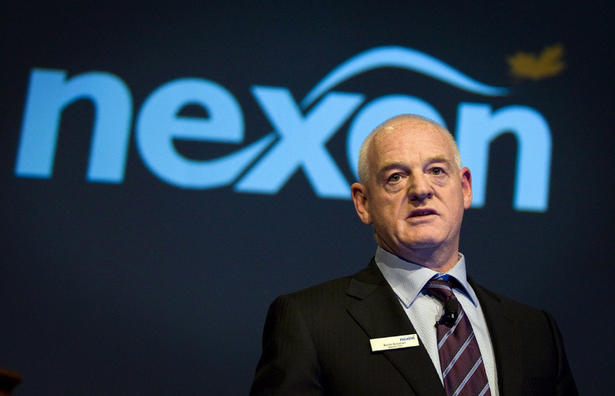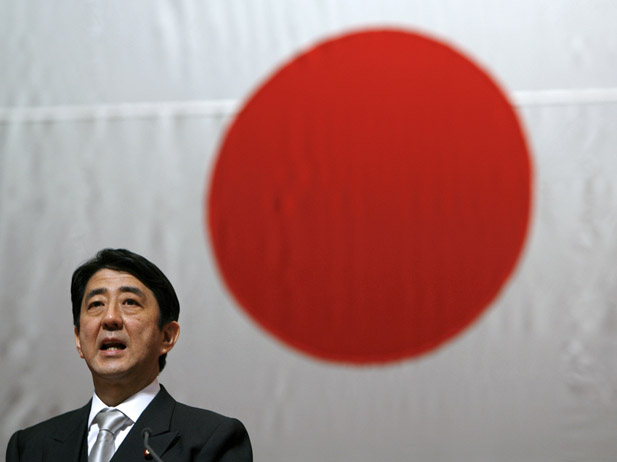“If you don’t spend time together, and invest together, it’s difficult to understand each other and bridge the cultural differences.” Andres Desmarais, President of Power Corp.
When Prime Minister Stephen Harper took to the Chinese stage with a loud and clear message that Canada was “open for business”, the Conservative government, it turns out, was not prepared for such a rapid response. The $15.1 billion bid by China’s state-owned oil natural gas giant, CNOOC Ltd, for Calgary-based Nexen Inc. some two months ago was sure to put Harper’s economic strategies to the test. But as the 45-day deadline for a government decision approaches its October 12, 2012 expiration date, the uncertainty brewing in Ottawa has left those in policy circles and the business community wondering what’s in store.

The acquisition of Canada’s sixth largest explorer and producer of natural resources by Chinese investors should come as no surprise. Harper’s tour of China in February 2012 was entirely purposed for deepening Sino-Canadian economic ties. With oil exports dominating the discussion, there appeared to be a strong potential for diversified trade relations for both Canadian and Chinese business leaders.
Yet when CNOOC stepped up, in what could be China’s largest foreign takeover, the Harper government looked quick to back away. The conservative ruling party is decidedly split between those who view the deal as beneficial for Canadians (and not just for the shareholders profiting from the 61 per cent premium on the trading price) and those whose concerns have coalesced around issues of ownership, nationality, and the implications of a Chinese hold on Canada’s crude-rich oil sands.
A recent C-Suite survey of corporate executives highlights these reluctant murmurs, with 50 per cent of respondents claiming they are somewhat or strongly opposed to the deal, with 43 per cent in favour. A similar survey conducted by Abacus Data found that 69 per cent of Canadians are also against the deal, while a meager 8 per cent would approve it.
Concerns have centered on whether the deal, with accompanied conditions, will truncate CNOOC’s authority given the extent of Nexen’s presence in the Calgary community. Deborah Yedlin of the Calgary Herald correctly points out these straightforward questions of who will work in the head office and where overriding decisions will be made. She also points out that CNOOC may decide to bring over its own employees, which would likely result in the displacement of local graduates in years to come. Yet, with Nexen holding only 25 per cent of its assets in Canada, CNOOC will likely keep most of the company’s functions in Calgary as well as their Nexen’s brand name, argues Kevin Reinhart, Nexen’s interim chief executive.
There is also the question of whether Canadian companies will be granted reciprocal trade access to Chinese markets. After all, acquisitions by state-owned firms warrant trepidation for policy makers in Ottawa that aren’t so eager to see the Chinese government carry out their relentless pursuit for energy resources at the expensive of Canada’s national interest. When Minister of Commerce Chen Deming visiting Toronto a few weeks ago he asked for Canadian authorities to be “fair and objective” when evaluating the takeover, noting that CNOOC, like all other companies, is answerable to all its shareholders and not simply to the Chinese government.
 Objectivity is absolutely crucial with regards to this potential takeover but the question is now, does the Harper government and its opponents have the wherewithal of impartiality? On October 2, NDP critic Pat Martin spoke frankly in the House of Commons debate where he lamented that China has already displaced Canadian jobs in the garment industry and in the high-tech sector. He went further to say “anybody that considers allowing this deal, I accuse them of economic treason.”
Objectivity is absolutely crucial with regards to this potential takeover but the question is now, does the Harper government and its opponents have the wherewithal of impartiality? On October 2, NDP critic Pat Martin spoke frankly in the House of Commons debate where he lamented that China has already displaced Canadian jobs in the garment industry and in the high-tech sector. He went further to say “anybody that considers allowing this deal, I accuse them of economic treason.”
While this deal spurs concerns of job displacement for some, others appear to take issue with the fact that it is a Chinese company making the bid. Almost 40 per cent of the executives surveyed said they would be more supportive of the proposal if it were a company from the United States that make the offer.
Gordon Houlden, Director of the China Institute at the University of Alberta, notes that the “otherness” of China is an element, as the “Chinese come with a lot of baggage.” And while some of this “baggage” may include the notably deficient human rights standards, hints of xenophobia, as the survey of executives illustrate, has certainly surfaced.
This clash of cultures will not see improvement with the continuation of jingoist rhetoric from within the political community. Scrutiny over the possibility that CNOON-Nexen deal will bring net benefits to Canada is necessary, but nationalist views could destroy an environment conducive to the much-needed deepening of Sino-Canadian trade relations. Issues of Chinese government transparency and reciprocal market access warrant a critical look by the Harper government. Yet the fear of a Chinese takeover for reasons of nationality should not enter the political arena or the private sector. After all Harper approached China on a campaign of selling Canada’s most prized resources. Shutting the door after an offer of this magnitude would have tremendous adverse effects on the prosperity of Sino-Canadian relations.




